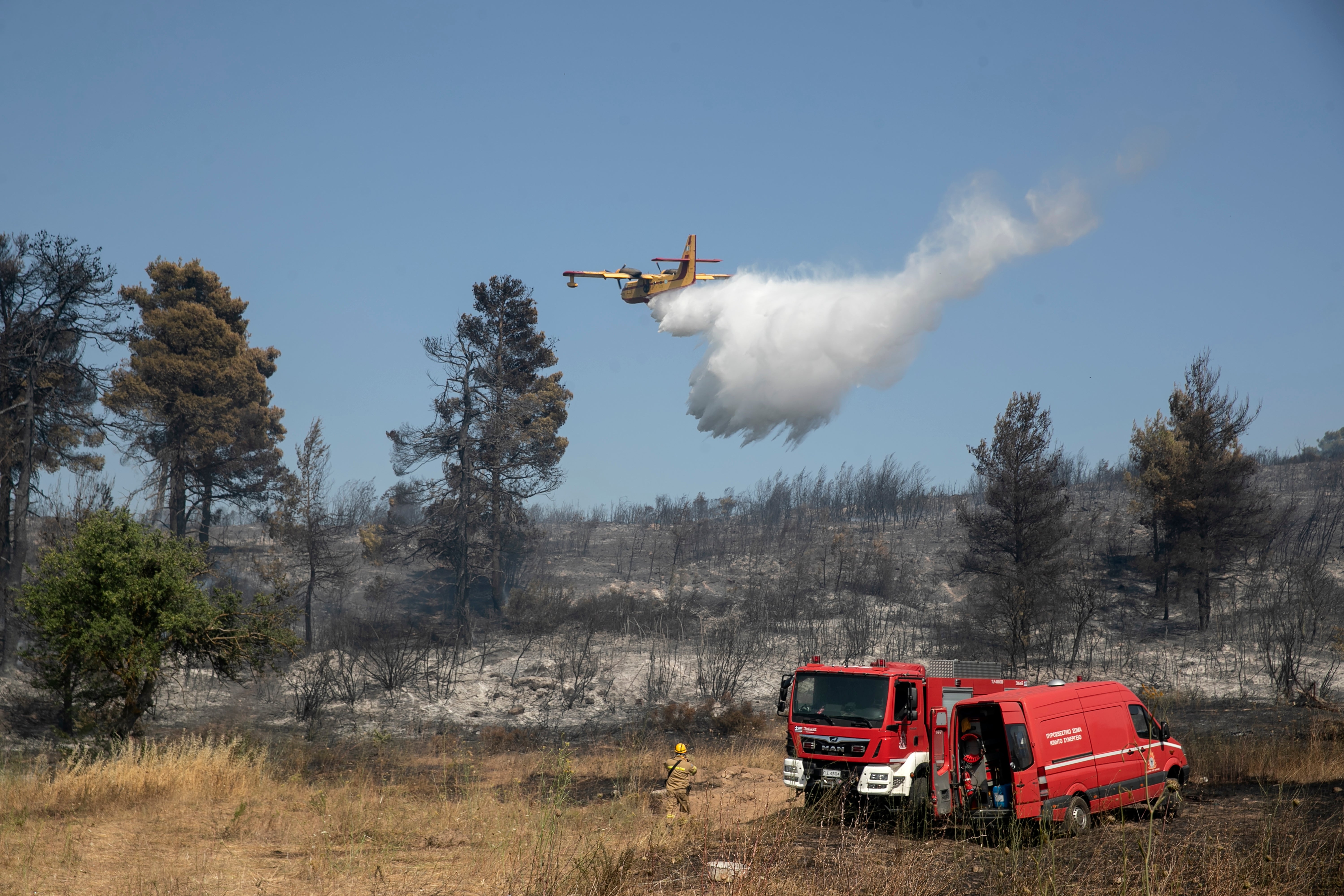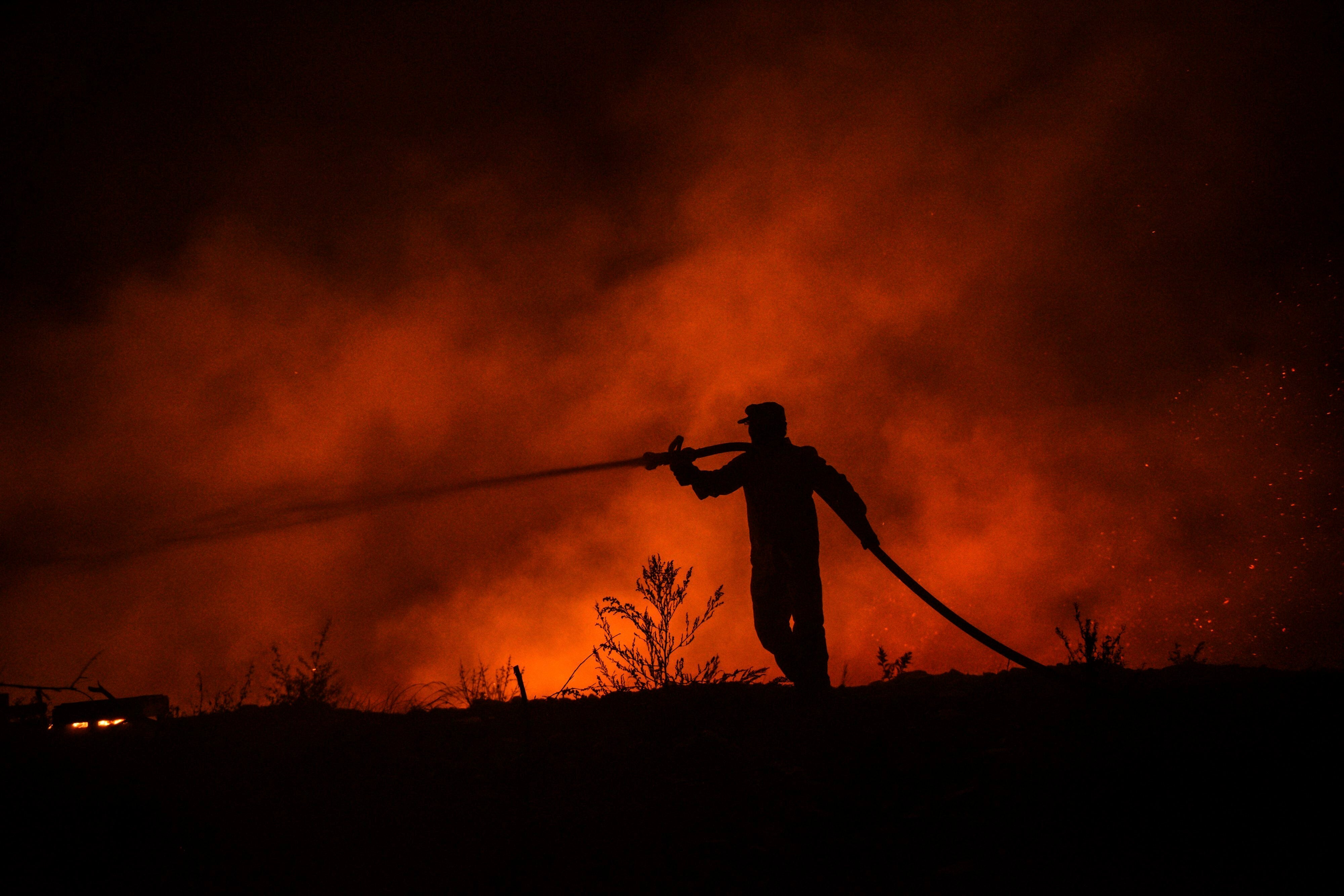Greek authorities warn ‘don’t work, don’t travel’ during 40C heatwave
‘Cimate change is here,’ said Stavros Solomos, a climate expert at the Academy of Athens.
Your support helps us to tell the story
From reproductive rights to climate change to Big Tech, The Independent is on the ground when the story is developing. Whether it's investigating the financials of Elon Musk's pro-Trump PAC or producing our latest documentary, 'The A Word', which shines a light on the American women fighting for reproductive rights, we know how important it is to parse out the facts from the messaging.
At such a critical moment in US history, we need reporters on the ground. Your donation allows us to keep sending journalists to speak to both sides of the story.
The Independent is trusted by Americans across the entire political spectrum. And unlike many other quality news outlets, we choose not to lock Americans out of our reporting and analysis with paywalls. We believe quality journalism should be available to everyone, paid for by those who can afford it.
Your support makes all the difference.Greek authorities warned the public against unnecessary work and travel on Friday as temperatures hit 40 degrees Celsius (104 °F) in Athens.
The ancient Acropolis, the city’s most visited monument, was briefly forced to close and the National Meteorological Service said there is a high risk of wildfires during the “dangerous” heatwave.
Temperatures have been high in much of the country in recent days and are expected to reach 44 degrees on Monday and Tuesday.
“We are constantly recording maximum record temperatures all these years, which means that climate change is here,” said Stavros Solomos, a researcher at the Centre for Atmospheric Physics and Climatology of the Academy of Athens.
“We are expecting to have more frequent, more intense heatwaves,” he said, as well as “tropical nights” - where temperatures do not fall below 25 to 30 degrees.

The Acropolis, which looks out over the capital, closed for a few hours as it does when temperatures rise, to protect tourists from the heat.
The heatwave was characterised as dangerous because it was expected to last several days - at least until next Friday, with the peak expected on Monday and Tuesday, said Theodoros Kolydas, head of the weather service.
Citizens’ Protection Minister Michalis Chrysochoidis warned of “extremely high temperatures” and urged people “to show the highest degree of responsibility and cooperation”.
He added: “I also want to appeal to our fellow citizens to avoid unnecessary travel in the heat but also unnecessary work.”
Earlier this month, Athens Mayor Kostas Bakoyiannis appointed a chief heat officer, the first in Europe, to help tackle extreme heat.
“Welcome to global warming! It’s very hot, it’s very oppressive,” said George Papabeis, a Greek-American tourist, as he made his way through central Athens.

On the capital’s beaches, conditions were equally dire.
“I think it will be like hell. I’m not happy about it,” said May Ben Atia, a tourist from Israel. “It becomes so hot you can actually feel it in your skin,” she said.
More than 1,000 people died in 1987 in Greece’s deadliest heatwave, with scorching temperatures for over a week.
Firefighters have tackled more than 40 wildfires in the last 24 hours, the fire brigade said, fanned by winds and high temperatures. A raging blaze north of Athens on Tuesday burned at least a dozen homes before being brought under control.
Neighbouring Turkey has been hit by wildfires in which four people have been killed this week.

Join our commenting forum
Join thought-provoking conversations, follow other Independent readers and see their replies
Comments